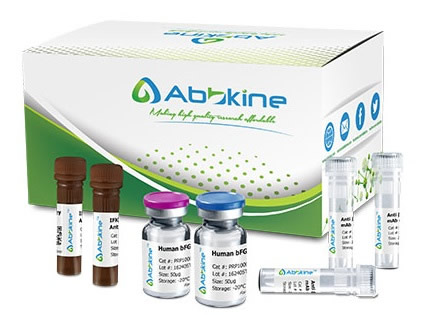MCTS1 (MCTS1, Re-Initiation And Release Factor) is a Protein Coding gene. GO annotations related to this gene include RNA binding and translation initiation factor activity. Anti-oncogene that plays a role in cell cycle regulation; decreases cell doubling time and anchorage-dependent growth; shortens the duration of G1 transit time and G1/S transition. When constituvely expressed, increases CDK4 and CDK6 kinases activity and CCND1/cyclin D1 protein level, as well as G1 cyclin/CDK complex formation. Involved in translation initiation; promotes recruitment of aminoacetyled initiator tRNA to P site of 40S ribosomes. Can promote release of deacylated tRNA and mRNA from recycled 40S subunits following ABCE1-mediated dissociation of post-termination ribosomal complexes into subunits. Plays a role as translation enhancer; recruits the density-regulated protein/DENR and binds to the cap complex of the 5-terminus of mRNAs, subsequently altering the mRNA translation profile; up-regulates protein levels of BCL2L2, TFDP1, MRE11A, CCND1 and E2F1, while mRNA levels remains constant. Hyperactivates DNA damage signaling pathway; increased gamma-irradiation-induced phosphorylation of histone H2AX, and induces damage foci formation. Increases the overall number of chromosomal abnormalities such as larger chromosomes formation and multiples chromosomal fusions when overexpressed in gamma-irradiated cells. May play a role in promoting lymphoid tumor development: lymphoid cell lines overexpressing MCTS1 exhibit increased growth rates and display increased protection against apoptosis. May contribute to the pathogenesis and progression of breast cancer via promotion of angiogenesis through the decline of inhibitory THBS1/thrombospondin-1, and inhibition of apoptosis. Involved in the process of proteasome degradation to down-regulate Tumor suppressor p53/TP53 in breast cancer cell; Positively regulates phosphorylation of MAPK1 and MAPK3. Involved in translation initiation; promotes aminoacetyled initiator tRNA to P site of 40S ribosomes. Can promote release of deacylated tRNA and mRNA from recycled 40S subunits following ABCE1-mediated dissociation of post-termination ribosomal complexes into subunits.
Human Malignant T cell-amplified sequence 1 (MCTS1) ELISA Kit employs a two-site sandwich ELISA to quantitate MCTS1 in samples. An antibody specific for MCTS1 has been pre-coated onto a microplate. Standards and samples are pipetted into the wells and anyMCTS1 present is bound by the immobilized antibody. After removing any unbound substances, a biotin-conjugated antibody specific for MCTS1 is added to the wells. After washing, Streptavidin conjugated Horseradish Peroxidase (HRP) is added to the wells. Following a wash to remove any unbound avidin-enzyme reagent, a substrate solution is added to the wells and color develops in proportion to the amount of MCTS1 bound in the initial step. The color development is stopped and the intensity of the color is measured.
Human Malignant T cell-amplified sequence 1 (MCTS1) ELISA Kit listed herein is for research use only and is not intended for use in human or clinical diagnosis. Suggested applications of our products are not recommendations to use our products in violation of any patent or as a license. We cannot be responsible for patent infringements or other violations that may occur with the use of this product.
Find more details at http://www.abbkine.com/product/human-malignant-t-cell-amplified-sequence-1-mcts1-elisa-kit-kte61684/
bio-equip.cn




